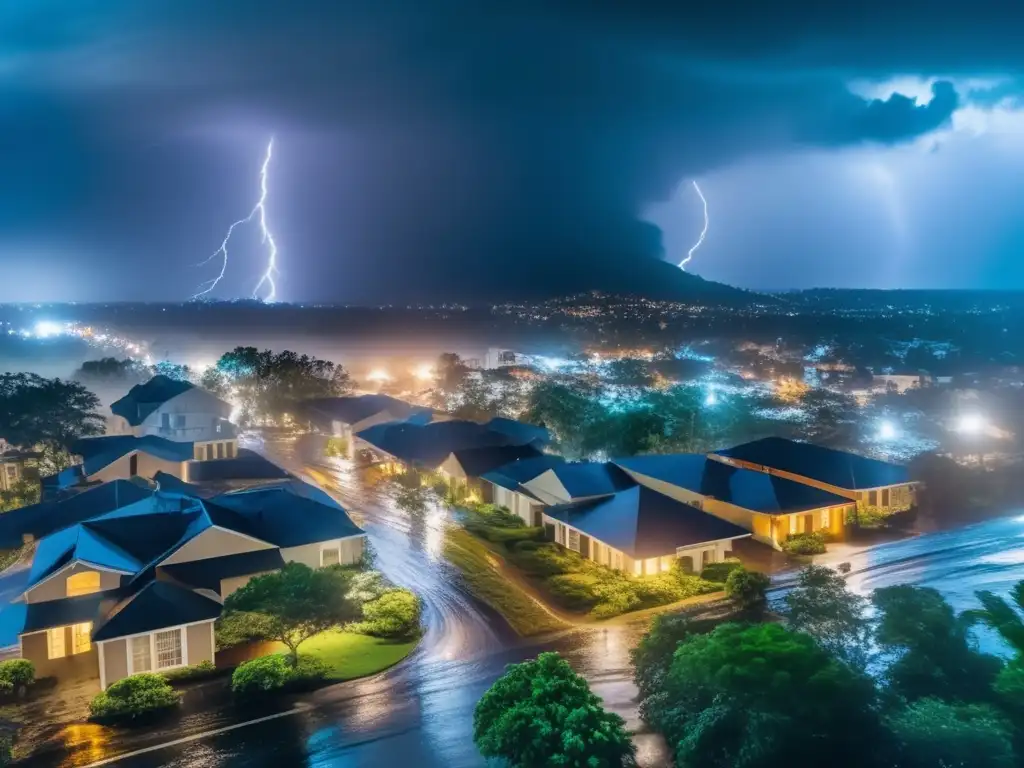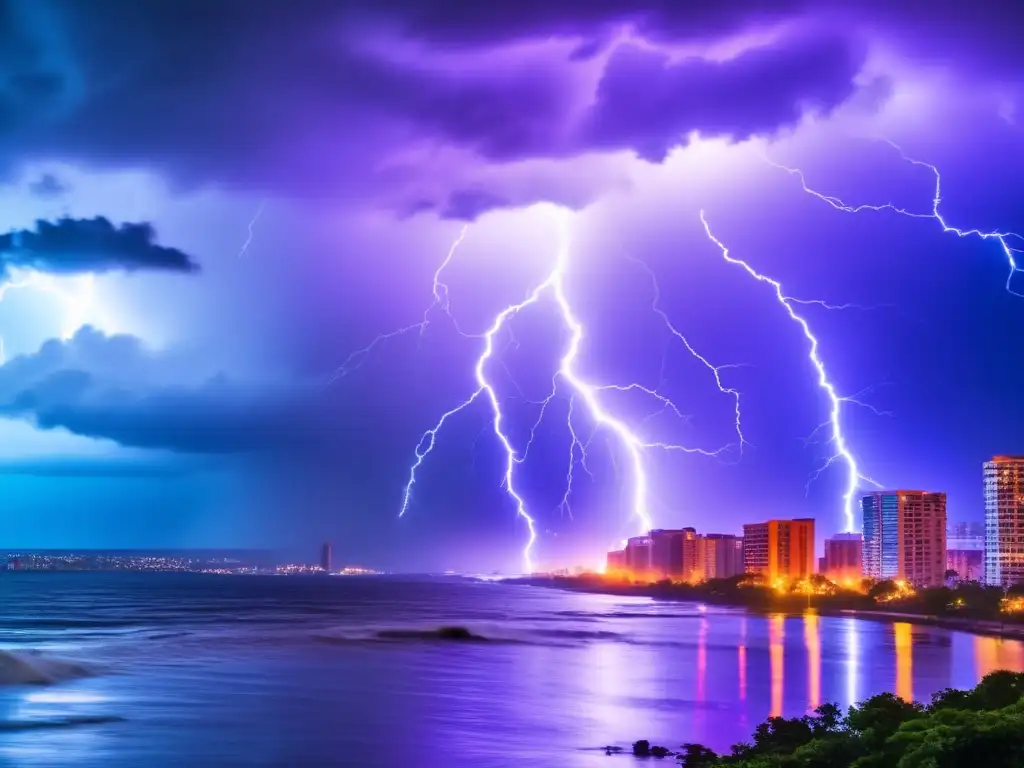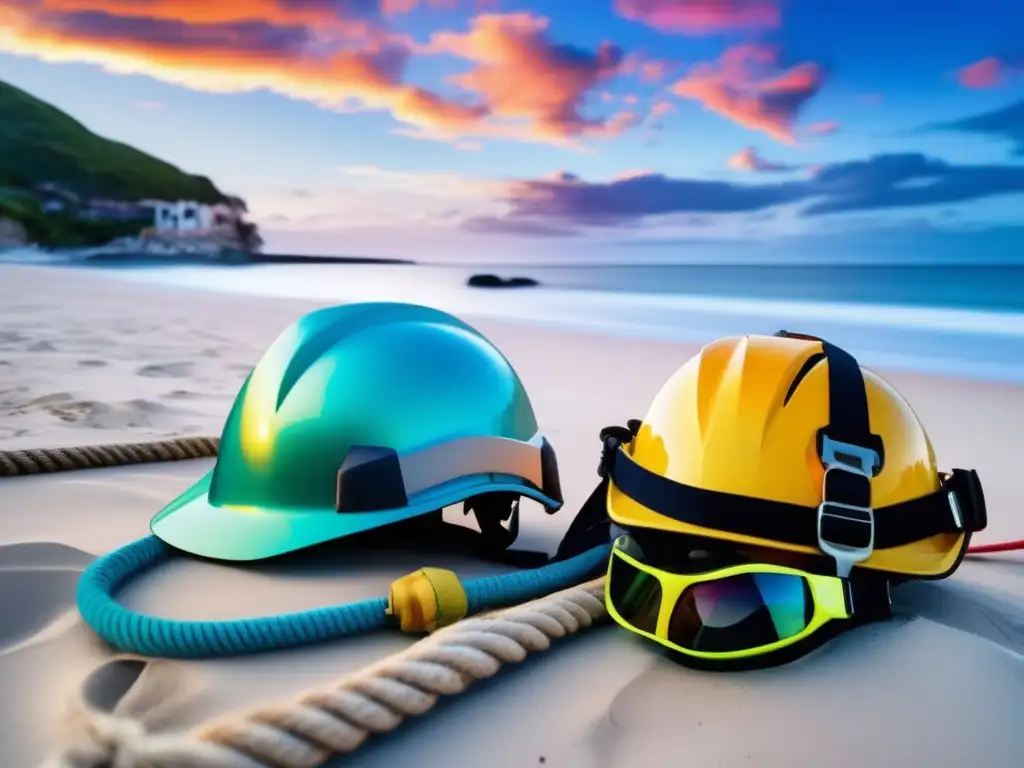Reducing Future Risk: Preparing For The Next Hurricane

Reducing Future Risk: Preparing for the Next Hurricane
Introduction
When a hurricane strikes, it can have devastating effects on human life and infrastructure. With the increase in frequency and intensity of hurricanes over the years, it is essential to be prepared for the next hurricane.
In this article, we will discuss the basic knowledge about hurricanes and how to prepare for them to reduce future risk. This guide will equip you with the necessary information to keep yourself and your family safe during a hurricane.
Understanding a Hurricane

A hurricane is a type of tropical cyclone that forms over the oceans, causing strong winds, heavy rainfall, and storm surges. Hurricanes are classified based on their wind speeds, with Category 1 being the weakest and Category 5 being the strongest.
Hurricanes form when warm, moist air rises from the ocean surface and moves upward, creating an area of low pressure. As the warm air rises, it cools and condenses into clouds, releasing heat energy, and powering the hurricane.
While hurricanes can occur at any time of the year, they are more frequent during the hurricane season, which runs from June 1 through November 30 in the Atlantic Basin.
The Anatomy of a Hurricane
A hurricane has several distinct parts, including the eye, eyewall, rainbands, and outflow. The eye is the center of the hurricane, where the winds are calm, and the skies are clear. The eyewall surrounds the eye and contains the most violent winds and intense rainfall. Rainbands, on the other hand, are the long, narrow bands of clouds that spiral around the hurricane and bring heavy rain. Finally, the outflow is the upper-level winds that blow away from the hurricane, allowing the storm to maintain its strength and size.
The Impact of a Hurricane
The impact of a hurricane can be devastating, causing injuries, loss of life, and destruction of property. Hurricane winds can knock down buildings, trees, and power lines, while storm surge can flood coastal areas and cause significant damage to infrastructure.
Heavy rainfall can also lead to flooding, landslides, and mudslides, making it challenging to access affected areas. In addition to physical damage, hurricanes often disrupt economic activities and social services, leading to a prolonged recovery process.
Preparing for a Hurricane

Preparing for a hurricane is crucial to reduce future risk and keep yourself and your family safe. There are several things you can do to prepare for a hurricane, including:
Making an Emergency Plan
Making an emergency plan is essential for preparing for a hurricane. Your emergency plan should include details on how to evacuate if necessary, where to go, and how to communicate with family members during and after the storm. You should also prepare an emergency kit with essentials such as food, water, medication, and first-aid supplies.
Securing Your Property
Securing your property is another critical step in preparing for a hurricane. Trim any trees or branches near your home that could fall and cause damage during high winds. Secure loose outdoor items such as furniture, decorations, or toys, and cover windows and doors with shutters or plywood to protect them from flying debris.
Stock Up on Essential Supplies
Before a hurricane, you should stock up on essential supplies such as food, water, batteries, and flashlights. Be sure to have enough supplies to last at least three days in case of power outages or extensive damage.
Stay Informed
Staying informed is key to prepare for a hurricane. Follow local news outlets and weather reports to stay up to date on the storm's progress and any evacuation orders. Sign up for emergency alerts from your local government to receive critical information on the storm.
During a Hurricane

During a hurricane, it is essential to take appropriate precautions to protect yourself and your family. Here are some tips to stay safe during a hurricane:
Stay Indoors
Stay indoors during a hurricane, and avoid going outside or driving in high winds, heavy rainfall, or flooding. If you must evacuate, follow the instructions of your local authorities and take your emergency kit and important documents with you.
Stay Away From Windows and Doors
During a hurricane, you should stay away from windows and doors, which can shatter and cause injury from flying debris. Stay in a small interior room or closet, preferably without windows.
Listen to Instructions
Listen to local authorities' instructions during a hurricane and follow evacuation orders if necessary. Do not ignore warnings or information, as they can keep you safe from harm.
After a Hurricane

After a hurricane, the recovery process can be overwhelming, but it is essential to follow safety precautions to reduce future risk and get your life back on track. Here's what you should do after a hurricane:
Check for Damage
After a hurricane, check for damage to your home and surroundings. Avoid touching downed power lines, and report any damage or hazardous conditions to your local authorities.
Keep Your Emergency Kit Handy
Keep your emergency kit handy in case you need it after the storm. You may experience power outages or disruptions in services such as water, gas, or communication.
Take Care of Yourself
Take care of yourself and your family after a hurricane. Seek medical attention if necessary, and watch for signs of emotional distress, such as anxiety, depression, or PTSD. Reach out for support if you need it.
Frequently Asked Questions

-
What should I do if I am unable to evacuate before a hurricane?
If you are unable to evacuate before a hurricane, seek shelter in a sturdy building and stay away from windows and doors. Stay informed about the storm's progress and any evacuation orders.
-
Is it safe to use a generator during a hurricane?
It is safe to use a generator during a hurricane, but make sure to follow the manufacturer's instructions carefully and keep it outside to avoid carbon monoxide poisoning.
-
What should I do if I encounter floodwaters?
Avoid driving or walking into floodwaters, as they can be deeper and more dangerous than they seem. If you must cross floodwaters, follow a safe path and watch for fast-moving currents.
-
How can I help my community recover after a hurricane?
You can help your community recover after a hurricane by volunteering with local organizations, donating blood, or giving to relief efforts. You can also support local businesses and services to stimulate economic recovery.
-
What should I do if my home is damaged or destroyed in a hurricane?
If your home is damaged or destroyed in a hurricane, contact your insurance company and document the damage with photos or videos. Seek assistance from local disaster relief agencies for temporary housing or assistance.
Conclusion
In conclusion, reducing future risk starts with being prepared for the next hurricane. By understanding the basics of hurricanes, making an emergency plan, securing your property, stocking up on essential supplies, and staying informed, you can keep yourself and your family safe during a hurricane.
After a hurricane, it is important to check for damage, keep your emergency kit handy, and take care of yourself and your loved ones. Remember to follow safety precautions and stay informed to reduce future risk.
We hope this guide has provided you with valuable information on preparing for a hurricane. Stay safe and be prepared!
Additional Resources

- Ready.gov: Hurricane Preparedness
- National Hurricane Center: Hurricane Safety Tips
- Centers for Disease Control and Prevention: Natural Disasters and Severe Weather
 Returning Home: Safety Tips For Reentering A Damaged Home
Returning Home: Safety Tips For Reentering A Damaged Home Repairing And Replacing Damaged Appliances After A Hurricane
Repairing And Replacing Damaged Appliances After A Hurricane Managing Stress And Anxiety During Post-Hurricane Recovery
Managing Stress And Anxiety During Post-Hurricane RecoveryIf you want to discover more articles similar to Reducing Future Risk: Preparing For The Next Hurricane, you can visit the Hurricane recovery: category.
Leave a Reply

Articulos relacionados: